Desolated Read online
Page 4
It was too hot to move any faster than a jog unless it was an emergency. The emergency today had come and gone. When he remembered losing the hen, he felt rage rise in him. And on the heels of that came a worse thought: it could have been Zoe, not just a bird.
He’d also seen the way the military man had looked at her. If they were going to have to deal with these men, maybe it’d be best to keep the women out of the way. Not that he could imagine any of the women agreeing with that. They had a democracy. Nobody decided for the group, not even his father, who wished he could. The men didn’t push the women around, not at all.
He trotted up to Curt. The men were no longer in sight. At the speed horses would give them, there was no way to follow them and spy on them. “How many of them?”
“Six, on horseback. Looked like they all had rifles.”
Another reason not to risk spying on them. “They did. At least that’s all of them. I was worried they might leave someone behind.”
“Should I stay here and keep watch?”
“I don’t know. What do you think?”
“Maybe we should set a watch tonight. Just in case.”
“Though if they come back, I’m not sure what we can do against six armed men.”
“Hide,” Curt said. “Run.”
“And leave the food and animals for them to plunder?”
“Better than dying and losing it anyway.”
“Die fast, or die slow.”
“Let’s get back,” Curt said, scanning the highway one last time. “It might be time to change the way we do certain things.”
They walked back together.
Dev said, “I hoped this was all behind us.”
“We all did.”
“The kids don’t know a thing about fighting,” he said. “Zoe was taught to shoot, back when we had dummy ammunition. But the orphans, C.J., Nina—all they know is farming.”
“They can learn. A lot of them can use a sling or a blowgun. They have the hand-eye coordination.”
Dev couldn’t help but sigh. He really had hoped that they’d never have a problem again, that he could live his life out in peace, enjoying his daughter and his friends, and feeling as if he’d accomplished something in the evenings when the work was all done.
“I hope my dad is okay,” he said. “Too much for me to worry about all of a sudden. I can’t keep focused on three things at once.”
“What’s wrong with your dad?” Curt asked.
Dev explained the collapse. “I hope it isn’t some new phase of his disease.” Then he realized who he was talking to. It was obvious that the long-term effects of Curt’s own disease were a problem for him. “Sorry, I didn’t think. That was rude of me.”
“No need to apologize. We all have our little troubles, and we all age.”
“Not having medicine is a pain in the butt,” Dev said.
“Tell me about it.” Curt’s disease had progressed as far as it had because, while he’d contracted it in the old days, when there were hospitals and fancy equipment and thousands of drugs, he hadn’t the money to treat it.
Now, there were no differences between rich and poor. Everyone left alive was surely a farmer, all were equal, and all were required to work hard in order to survive.
Or that was what Dev had assumed until he met the military men. They obviously ate well, but they didn’t stay at home to grow the food they ate.
“I need to check on Dad first,” Dev said. “And then we all need to talk. I hope someone back there has had a second to think about it and come up with a list of responses. Because I sure haven’t.”
“It might take more than a second.” They turned up the Quinn driveway and returned to find all the dishes done, and people sitting and standing around the old picnic table.
“I’m going to check on my dad,” he said to everyone, and he went inside his house. Zoe and Misha were in his dad’s room. With only the sofa in it, there was plenty of space for the three of them to stand. “What’s the story?”
“They’re making me lie here,” Arch said. “But I feel perfectly fine.”
“Just rest for the afternoon,” Misha said. “It’s the only sensible thing to do.”
“I hate resting!” Arch said. “And there are plans to be made. Dev, you remember where the grenades are buried?”
“I do. The men are gone though. We won’t need them right this second.”
“I wish the night vision equipment still worked,” Arch said.
“Me too, but it doesn’t. We’ll set a watch tonight. The moon is out. We’ll see them coming.”
“You think they will?” His father had never sounded so old to him before. His voice wasn’t strong and angry, but high and thin. There was a quaver that revealed his fear. Or perhaps that too was the disease.
“I don’t think so.” They have all the time in the world to come back and steal from us, he didn’t say, so it doesn’t have to be tonight. “I think they’re scouting, approaching people along the highway. Testing the waters.”
Misha said, “They won’t get a very good response if they shoot an animal at every place.”
“I don’t think that was planned,” Zoe said. “I think he lost control.”
“Even worse,” Arch said. “Military men without discipline are the worst.” He didn’t know that from any personal experience in the military but from his extensive collection of books on the history of warfare, on tactics and strategy.
“Can I trust you to lie here all afternoon?” said Misha. “Or am I going to have to make one of us stay here and sit on you?”
“Are we going to meet?”
“Yes,” Dev said. “Right away.”
“Then I should be there.”
Zoe said, “Gramps, I promise I’ll come back right after and tell you everything.”
“But I won’t be able to say what I think.”
“Everybody knows how you think,” Zoe said. “But we won’t make any decisions without your okay. You know how we work.” Group decisions required consensus, which sometimes took longer to achieve, but left fewer bad feelings. When it came to matters that affected a single household, that was the household’s business how to decide. But when it came to group matters, like the grain fields, or like self-defense, that required more discussion and compromise.
Dev said, “I’ll come back too, Dad. Zoe and I should remember everything between us.”
“I feel okay,” he said. “As long as I can sit.”
“You sound tired,” Misha said. “Try and nap if you can. I’ll stay here if I need to,” she said, directing that to Dev. “But I’d rather be in on the discussion.”
“You don’t want to make Misha miss the meeting,” Zoe said to Arch. “Do you?”
“All right, all right. I can’t fight against all of you.”
“No, you can’t,” Zoe said, cheerfully. She leaned over and kissed his forehead. “I love you, Gramps.” She left.
Misha looked at Dev, and he nodded at her that it was okay to go. “Okay, Arch. I’ll check on you in a few minutes.” She left too.
“Is there anything you want everyone to know?” Dev said.
“We need to hide some supplies. They could come in here and strip us of everything. But if we get food, and more importantly some seeds, hidden away, we could plant again, maybe survive until crops come up.”
At this time of year, with the scalding weather just around the corner, Dev wasn’t so sure. But he would pass it along. “Okay,” he said. “We’ll get that organized.”
“And if you dig up the grenades, be careful. They could go off too.”
“Wasn’t planning on it. We’ll have to be desperate for me to do that.”
“We’re close to it.”
“Possibly,” Dev said. “You know we’ll all do the best we can. It’s a good group.”
He grunted.
Dev said, “Okay, then I’m going. Try to rest.” He was at the door when his father spoke.
“You raise
d a good girl there, Devlin.”
Dev stopped and looked back, surprised. His father wasn’t full of praise, not ever. “Well, you and Mom raised her too. So you need to pat yourself on the back as well.” He left, but then realized what he’d not said. He backtracked and stuck his head in the room. “But thanks for saying so.”
“How can I rest if you keep talking to me?” his father said.
There was the Arch Dev knew and loved. “See you in an hour or two.”
Chapter 7
“You know what I noticed,” Joan said. They’d been talking for fifteen minutes, not very organized about it, mostly expressing their worry and anger. “They didn’t have any women with them. I think it’s fair to say, and I hope you guys don’t hate me for thinking this, that when there are women, they can be a temporizing influence.”
“I don’t know about that,” Pilar said. He glanced at Sierra.
“I didn’t like the way they looked at Brandie,” Troy said.
“Nor did I,” Dev said. “I got the distinct impression they saw women as more resources. I think our female half should make themselves scarce the next time these guys come along.”
None of the women liked that, and they made it known.
“I’m not going to hide in the trees while the rest of you have to fight,” Yasmin said.
“Me neither,” said Zoe. “Sorry, Dad, but if you fight, I’m fighting right by your side.”
They all had their say. When that reaction had wound down, Pilar said, “We have to be clear about this. It isn’t going to be much of a fight. They have guns, and we don’t. Even with the crossbow and hunting bows aimed at them, we’re going to take casualties at least at five times the rate.”
“Which begs the question,” Dev said, “how many of them are there altogether?”
“Has to be quite a lot,” Joan said. “You wouldn’t send out any more than—what, ten percent of your troops, would you?”
“Arch might know that answer,” Zoe said. “Maybe there’s some official rule.”
Dev said, “I wouldn’t send out that many, not if I could help it. I’m guessing there are at least a hundred more back home.”
Rod said, “They mentioned scouting Show Low from the north. So that means they must control everything in Flagstaff, right? And east to Winslow.”
“A lot of Indian land in there,” Pilar said. “I can’t imagine the Navaho taking that without a fight.”
Joan said, “But it’s poor land. It didn’t support the Indians at any point in the last few hundred years. They needed grocery stores, like we did.”
“But we didn’t,” Sierra pointed out. “We thought we did, but we didn’t need them.”
Brandie said, “I remember farmer’s markets once a week. We traded stuff we’d grown. Stuff we’d made too. In Payson, before the epidemics.”
A few nods from the other kids. “I hadn’t realized that was happening,” Dev said. “I wonder if they still do.”
“Only before the second sickness came through,” Troy said. “That changed everything. Our lives most of all, but everything. I hope they’re still holding it together down there.”
“We need to find out,” Rod said. “That’s the first thing we should do. Get down there, ask them if those guys visited them. Find out if they killed animals or stole food. See what they offered them, and in exchange for what.”
Joan said, “It’s a long walk.”
Dev said, “We can’t split up our forces. We have few enough people.”
Curt spoke up, a rare thing if he was in a group. “Better to go now and get back quickly. If those guys don’t return tonight, they might not return for several more days. From the little I heard, they’ll have others to approach with their offer.”
“Offer? Threat, more like,” said Sierra.
“Definitely threat,” Dev said. “They sounded as if they’d be working on building the highway back up no matter what. And that they’d do it even over our protest.”
“And tax us for it too,” Pilar said.
Dev said, “You know what Dad would say to that.”
“I wouldn’t disagree. Taxation without representation and all that,” Pilar said. “A cleared highway means more danger for us.”
“Oh crap,” Dev said. “I wonder what they’ll think when they come to the destroyed place up the hill.”
“Or if they’ll turn around,” Joan said, frowning with concern. Her face was wrinkled from years in the sun, and the frown drove the lines deeper.
Curt said, “Horses won’t be bothered by that. They’ll go over or around it.”
Yasmin said, “I wish I’d seen the horses. I’ve never seen one.” A number of the younger kids nodded. Of course they wouldn’t have. They’d been born after the end of oil, and after the first hunger, when horses and even dogs and cats had been eaten for food.
Pilar said, “I’m afraid you’ll have a chance to see them again, sooner than we’d like.”
Everyone went silent at that. There were only worried faces around the circle. No one was excited about a fight, as had been true way back at the beginning when they’d had the means to defend themselves.
Dev broke the silence. “We need to work on our skills. Whatever hunting weapon you’ve been trained to use, you need to practice with it.”
Yasmin said, “I use a sling. Can you hurt a person with that?”
Sierra said, “Maybe not kill him, but you might ruin his aim, give someone a chance to run away. Better than my blow gun. Unless I got a lucky shot in an eye, it wouldn’t do much damage.”
“Hate to use up the remaining hardware on darts for so remote a chance,” Pilar said.
Dev passed along the message he’d been asked to convey. “Dad said we need to hide some things in the woods. A cache of seeds.”
Curt said, “That won’t do us any good unless there’s food to carry us over until the plants mature.”
“Four weeks for radishes to grow,” Sierra said. “But we can’t live on radishes.”
Curt said, “No. So we need to take food like potatoes, winter squash, sweet potatoes.”
“Or,” Joan said, “we disguise the root cellars.”
“They’re all in logical places,” Curt said. “They’re going to know where to look if they’ve been doing this for a while.”
“How long have they been, do you think?” asked Georgia.
“Gotta be years, don’t you think?” Pilar said, looking around. “Long enough to win someone over and build an irrigation system, or repair windmills. I wonder if those are to grind grain or what. And where they are.”
Joan said, “We’re taking them at their word about all they said they did. I’m not sure that’s smart.”
Dev realized this was true. “Good point.”
Sierra said, “If we send someone down to Payson, we need to check with Wes’s group too.”
“If they’re still there,” Dev said.
“They will be,” Sierra said. “They were six years ago. At least Rudy said they were.”
Rudy had stayed with them for a time, way back at the beginning of all this, after his cousin was killed. When they’d helped to liberate Payson from invaders from Phoenix, he’d decided to live in Payson and teach children, something he’d found a real talent for with another set of children who’d been stranded up here, including Rod. Joan had made sure that group of orphans was adopted in Payson—as a minister there, or priest rather, she’d had not only standing and respect in town but some moral authority.
When the second of two diseases had swept through Payson and left more orphaned, Rudy had come up here and begged them to take some on. He’d kept his physical distance from them, worried he carried a disease he was immune to but they were not. But from two dozen feet away, he’d negotiated the situation they had now and stayed a night on the Quinn porch.
After a discussion, the neighborhood had agreed to take six children older than ten, but none with a sibling they had to leave behind. The age re
quirement was because they had needed people who could carry their own weight. Ten-year-old kids could hoe and weed and plant and harvest. They could preserve food. They could stand guard at the grain fields and wave away some of the birds that came for the ripe grain.
Dev said, “Who should go to Payson?”
Troy said, “I would.”
“Not without me,” Brandie said.
“Maybe not you two, considering,” Dev said. “Who else is willing to go?” Every hand but Yasmin’s shot up.
She shook her head. “I’m sorry, but it’s too sad for me to go down there.” She’d lost a whole family—mother, father, grandparents, and uncle. “I’ll do anything you say, but not that.”
“No problem,” Barry said. “Should all five of the rest of us go?”
“Two,” Pilar said. “Think about it overnight. Discuss it together. And I guess Sierra should write a note to Wes’s group for you to take, introducing you. She knew them best.”
“Okay, but whoever goes, what do we say to them?” Misha asked.
“Whoever goes would be trying to figure out what’s going on,” her mom said. “Ask if the men came through, what they offered, what they threatened, if they have a plan, if we might coordinate our defense. Share information, in short.”
“We need to figure out what we’re going to do to prevent those guys stripping the farms bare,” Sierra said, “beyond digging a new cellar to hide high-calorie food, and beyond caching seeds.”
Zoe said, “And practicing with our weapons. I can set up a training schedule if you want, Dad. We could get a couple people up to speed on bows, maybe, if those guys don’t come back for a few weeks. In a fight, you and I could go down, and if we do, we don’t want the bows just lying there unused.”
Dev couldn’t bear the thought of his daughter dying in a battle. He glanced to Pilar, wondering how he’d made it through Sierra’s aggressive, often reckless months back at the beginning. Joan’s girls were not aggressive in the least. Misha was a natural healer, and Emily would forever be shy of strangers and confrontation. Or maybe not, he thought, watching her watch Nina. Maybe she’d go all mama bear on attackers if it meant protecting her cub.

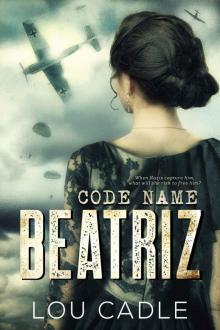 Code Name- Beatriz
Code Name- Beatriz Oil Apocalypse Collection
Oil Apocalypse Collection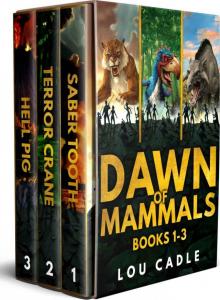 A Dawn of Mammals Collection
A Dawn of Mammals Collection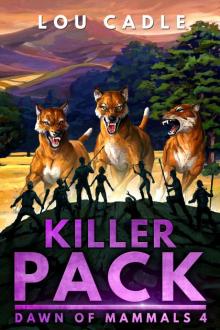 Killer Pack (Dawn of Mammals Book 4)
Killer Pack (Dawn of Mammals Book 4)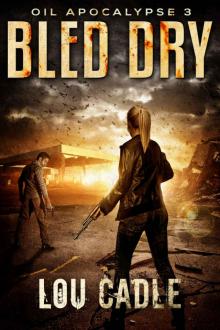 Bled Dry
Bled Dry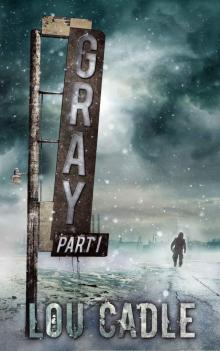 Gray (Book 1)
Gray (Book 1) Dawn of Mammals (Book 4): Killer Pack
Dawn of Mammals (Book 4): Killer Pack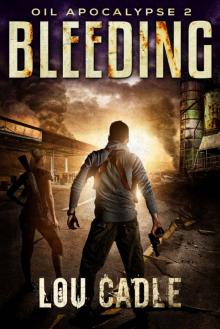 Bleeding (Oil Apocalypse Book 2)
Bleeding (Oil Apocalypse Book 2)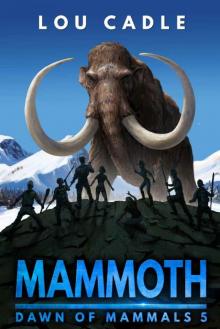 Dawn of Mammals (Book 5): Mammoth
Dawn of Mammals (Book 5): Mammoth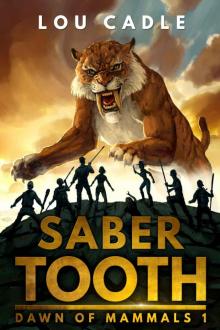 Saber Tooth (Dawn of Mammals Book 1)
Saber Tooth (Dawn of Mammals Book 1)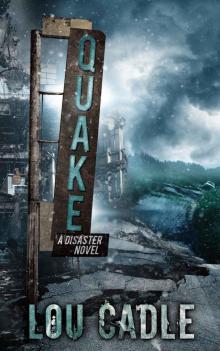 Natural Disaster (Book 2): Quake
Natural Disaster (Book 2): Quake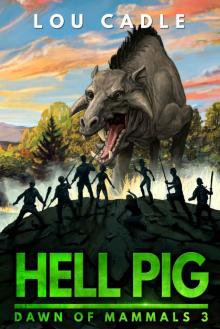 Hell Pig (Dawn of Mammals Book 3)
Hell Pig (Dawn of Mammals Book 3)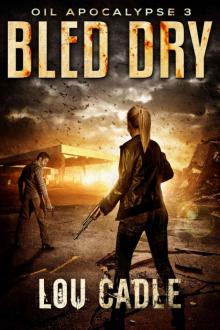 Bled Dry (Oil Apocalypse Book 3)
Bled Dry (Oil Apocalypse Book 3)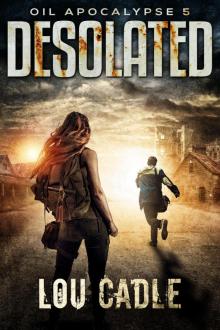 Desolated
Desolated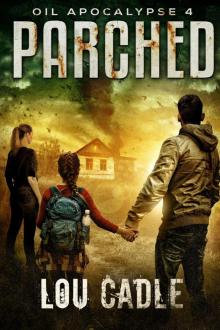 Parched
Parched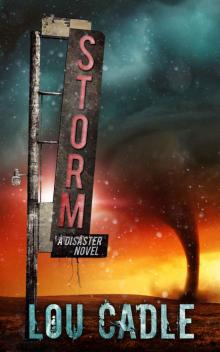 Natural Disaster (Book 3): Storm
Natural Disaster (Book 3): Storm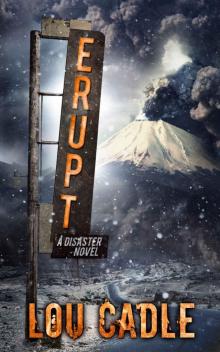 Natural Disaster (Book 1): Erupt
Natural Disaster (Book 1): Erupt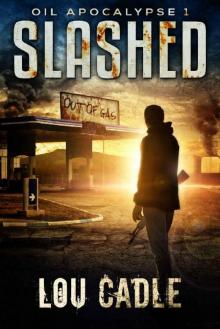 Slashed (Oil Apocalypse Book 1)
Slashed (Oil Apocalypse Book 1)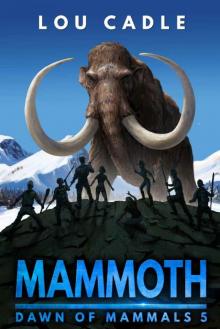 Mammoth (Dawn of Mammals Book 5)
Mammoth (Dawn of Mammals Book 5)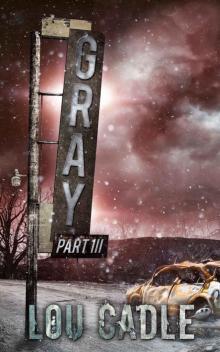 Gray (Book 3)
Gray (Book 3)